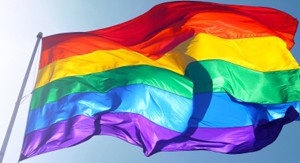This week in Queery we’re going to be talking about a topic that underlies every other Queery we do all year: language, and the ways we use it in queer communities (particularly when we talk about people’s identities!). Sometimes the conversation in Queery can feel intimi…dating, because it can involve words and ideas that we don’t come across in everyday life, and might never have heard before if we’re new to queer communities. Feeling like we don’t know the “right” language to express our ideas can even make us feel like it’s easier to stay quiet, to avoid saying the wrong thing.
That’s why, this week, we’re going to address the topic directly! We can discuss some of the language that we use to talk about queer identities, why we use it, ways to keep it accessible/not alienate each other with the language we use, and strategies for asking people what language is appropriate when you feel unsure. We can also share stories about words that have been used to identify us that have made us feel uncomfortable, as well as words that DO make us feel comfortable (or even empowered). If we have time at the end, we can even talk a bit about reclamation, i.e. the process of taking words, like “queer”, that have been used as insults, and turning them into positive identities.
READING MATERIAL:
– A piece from this year’s O Week Queer Zine by Hannah on Langauge and inclusion in queer communities
– Challenging oppressive language:
“Even within activist collectives, oppressive language can still permeate. Oppressive slang has become such a part of the cultural vernacular of youth that it can be difficult to pick apart it’s actual meaning. Though often still dismissed as political correctness, oppressive language is a part of every day activism and living in solidarity that is integral to social justice.
By changing and challenging this normalized language, activists are changing and challenging behaviours and ideologies that are racist, sexist, homophobic, transphobic, elitist, ablist, sizist and overall, oppressive. This guide covers: – What is it – What to say – How to reclaim language – Challenging opposition.”
AND
– A couple of readings on ableist/oppressive language in general:
FINALLY
Check out our new GLOSSARY!
